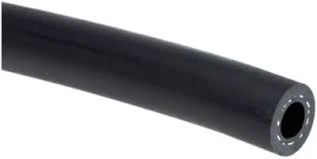gas hoses
Dec . 12, 2024 10:50 Back to list
gas hoses
Understanding Gas Hoses Types, Uses, and Safety Measures
Gas hoses are essential components in various industries, providing a safe and efficient method of transporting gases from one location to another. Whether used in home appliances, industrial settings, or laboratories, these hoses play a crucial role in ensuring that gases are delivered reliably. This article will delve into the different types of gas hoses, their applications, maintenance tips, and necessary safety measures.
Types of Gas Hoses
Gas hoses come in several types, each designed for specific applications and gas types. The most common types include
1. Rubber Gas Hoses Rubber hoses are commonly used for transporting LPG (liquefied petroleum gas) and natural gas. They are flexible, durable, and resistant to various environmental factors, making them suitable for both indoor and outdoor applications. Rubber hoses are often reinforced with textile or steel wires to enhance strength and reduce the risk of kinking.
2. PVC Gas Hoses Polyvinyl chloride (PVC) hoses are lightweight and resistant to chemicals, making them ideal for conveying gases in laboratories or food processing industries. However, they are less flexible than rubber hoses and may not withstand extreme temperatures and pressures.
3. Stainless Steel Braided Hoses For high-pressure applications, stainless steel braided hoses are preferred. This type of hose can handle higher temperatures and pressures than conventional rubber or PVC hoses. They are commonly used in industrial settings, such as in gas and oil transportation.
4. Thermoplastic Hoses These hoses are made from synthetic polymers and are suitable for various gases, including corrosive ones. They offer excellent flexibility, resistance to abrasion, and are lightweight. Their versatility makes them popular in both industrial and automotive applications.
Applications of Gas Hoses
The applications of gas hoses are numerous and span various industries
- Home Appliances Gas hoses are commonly used in stoves, grills, and heating systems to transport LPG safely. - Food and Beverage Industry In food processing plants, gas hoses are used to transfer gases that aid in cooking, packaging, or carbonation processes. - Manufacturing and Welding In industrial settings, gas hoses play a vital role in transporting gases used for welding and cutting metals. - Laboratories Gas hoses are essential for delivering gases like oxygen, nitrogen, or carbon dioxide in laboratory settings for experiments and research.
gas hoses

Maintenance and Safety Measures
While gas hoses are designed to be safe, proper maintenance is critical to preventing accidents. Here are some maintenance tips
1. Regular Inspection Periodically inspect hoses for any signs of wear and tear, such as cracks, leaks, or bulges. Any damaged hose should be replaced immediately.
2. Proper Storage Store gas hoses away from direct sunlight, sharp objects, or extreme temperatures to prevent deterioration.
3. Correct Installation Ensure that hoses are installed according to manufacturer guidelines. Improper connections can lead to leaks or hose failure.
4. Pressure Testing Conduct pressure tests periodically to ensure the integrity of gas hoses, particularly in industrial applications where pressure variations occur frequently.
Safety measures should also be a top priority when working with gas hoses
- Use Leak Detectors Install gas leak detectors in areas where gas hoses are used, especially in confined spaces, to alert any leaks immediately. - Training Ensure that all personnel involved in handling gas hoses are adequately trained on safety protocols and emergency response. - Ventilation Maintain proper ventilation in areas where gases are transported to disperse any accidental leaks.
Conclusion
Gas hoses are critical for the safe and efficient transport of gases in various applications. Understanding the types of gas hoses available, their specific applications, and the importance of maintenance and safety measures can help prevent accidents and ensure reliable operation. Whether in a home kitchen or a bustling industrial plant, the role of gas hoses cannot be overstated, making them an indispensable element in modern gas management systems.
